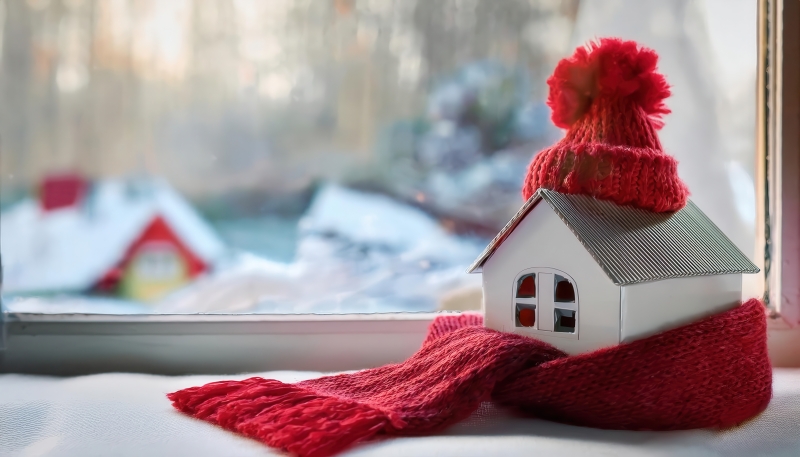We all know we need to clear the driveway and sidewalk when it snows, but as a homeowner what else should you do? Now that the winter weather is here, it's time to ensure your home is ready for the colder temperatures and snowfalls to come.
Proper maintenance is key to keeping your home protected from weather-related damage. Here are six tips to help protect your home from winter weather.
Do a visual inspection of the exterior
A roof and exterior drainage system in good working order keeps melting snow and water moving away from your home – not leaking into it. Before the snow builds up on your roof, take time to look for any shingles or flashing that may be damaged or missing, inspect eavestroughs for debris that may cause blockages, and make sure your downspout is directing water away from your foundation. If you are not able to make these observations from a safe ground level, consider hiring a professional to assist with your inspection.
Protect your roof
Snow-covered roofs may look nice in the movies, but in real life they can lead to damage, water leaks, and even mould. As the temperatures fluctuate and snow melts during the day before freezing again at night, an “ice dam” could be forming on your roof. Throwing salt or de-icing chemicals on roof ice can damage the roof itself and going up on the roof yourself to clear snow or ice can put you at risk. If you have a build-up of snow or ice and want it removed, consider hiring an experienced professional to do it for you.
Clear snow from other key areas
When it comes to Ontario winters, you can always count on having snow, and it's not just your driveway that needs to be cleared. Avoid piling snow next to your house and be sure to clear any around the foundation, as water from melting snow could end up seeping into your home and result in damage to your belongings. Clearing other key parts around your home like furnace exhaust pipes, dryer vents and window wells, can also help ensure that snow and water aren't getting into your house.
Check your furnace (and change the filter!)
Have your furnace serviced by a professional to confirm it is working efficiently and help extend its lifespan. It’s a good idea to replace the furnace filter at the beginning of the heating season, and every three months afterwards. You should also inspect the external exhaust to ensure it's not clogged with debris or snow– a blocked furnace exhaust can lead to poorer performance and dangerous carbon monoxide buildup in your home.
Test smoke and carbon monoxide detectors
While they are a critical part of home safety all year round, your smoke and carbon monoxide detectors are even more important during winter when windows are shut, and the heating is on since there's less ventilation. Take a few minutes to test them and, if necessary, replace their batteries.
Turn off the water supply to exterior taps
If you have exterior hose connections in your backyard, at the side of your house or even in the garage, it's important to turn off the water supply to avoid frozen or burst pipes. If you can't find where to shut off the water and you have a newly built home, ask your builder.
For more helpful tips, check out this monthly home maintenance checklist.
